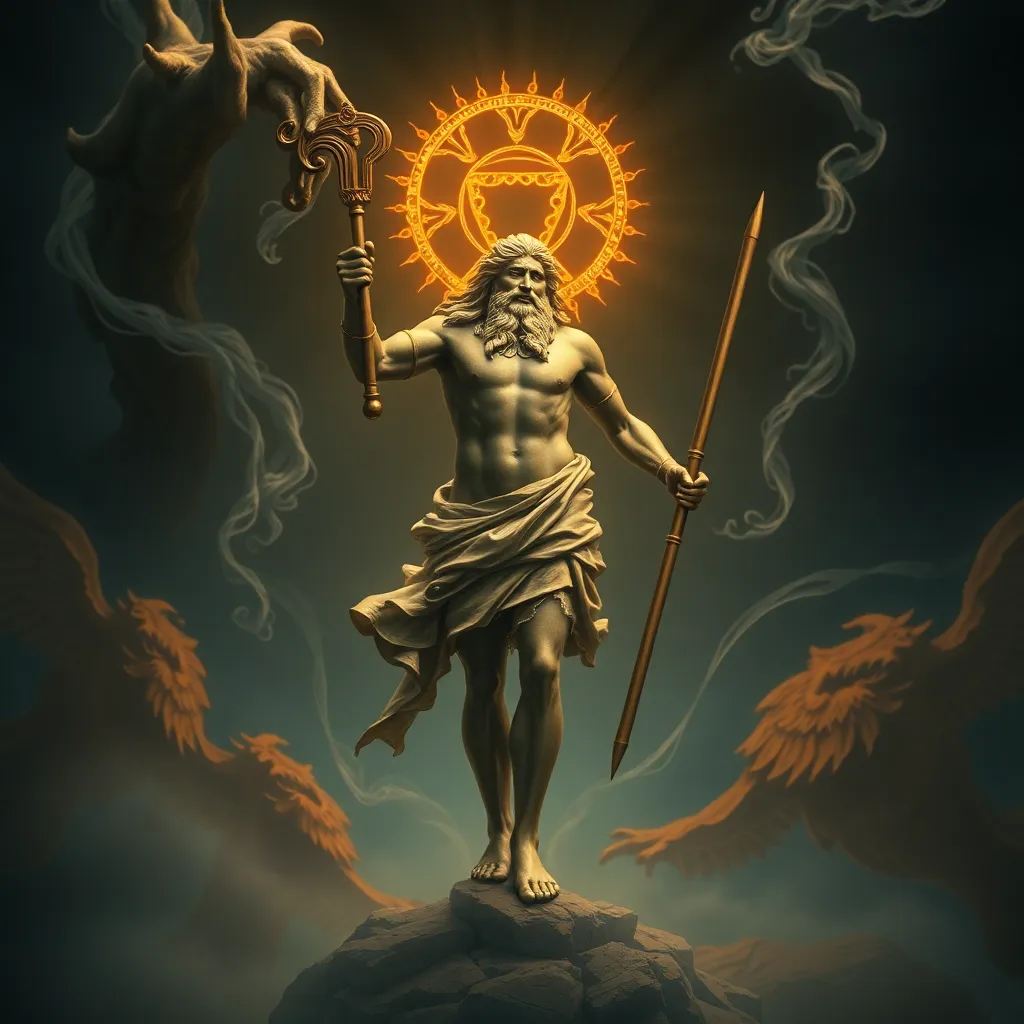The Legacy of Theseus in Modern Psychology and Philosophy
I. Introduction
The myth of Theseus is one of the most captivating narratives from ancient Greek mythology, embodying themes of heroism, identity, and moral complexity. Theseus, the son of Aegeus, King of Athens, is celebrated not only for his legendary adventures but also for the profound questions his story raises about the nature of humanity. His importance in ancient Greek culture is underscored by his role as a unifier of the Athenian people and a symbol of the hero archetype.
The purpose of this article is to explore the legacy of Theseus in modern psychology and philosophy, examining how his myths continue to resonate in contemporary thought and practice.
II. The Myth of Theseus: A Brief Recap
Theseus’s life is marked by numerous key events that highlight his heroic qualities and moral dilemmas:
- His journey from Troezen to Athens, where he confronts various foes such as bandits and beasts.
- The famous encounter with the Minotaur in the Labyrinth of Crete, where he displays courage and cunning.
- The return journey where he forgets to change the sails, leading to his father’s tragic death.
The myth of the Minotaur symbolizes the struggle between civilization and chaos, with the Labyrinth representing the complex, often convoluted paths of life. Additionally, the Ship of Theseus presents a philosophical puzzle: if all parts of a ship are replaced, is it still the same ship? This paradox invites deeper reflection on identity and continuity.
III. Theseus in Psychological Theory
In psychology, the concept of identity and self is paramount. Theseus’s story serves as a rich source for exploring these themes:
- His journey reflects the development of personal identity, with each challenge shaping who he becomes.
- Carl Jung’s theories of archetypes, particularly the hero archetype, are exemplified in Theseus’s character.
- The Ship of Theseus metaphor illustrates the complexities of personal identity, as individuals evolve over time while retaining a core sense of self.
Theseus’s adventures and transformations resonate with psychological theories that address how experiences shape identities, making him a powerful figure in understanding the self.
IV. Existentialism and Theseus
Theseus’s choices and moral dilemmas provide fertile ground for existentialist thought. His narrative embodies core existential questions:
- What does it mean to make a choice in the face of uncertainty?
- How do we define ourselves through our actions, particularly in morally ambiguous situations?
Existentialist thinkers like Jean-Paul Sartre and Søren Kierkegaard delve into these issues, examining the implications of Theseus’s decisions on personal freedom and responsibility. The hero’s journey reflects the struggle for authenticity in a world that often imposes external definitions of self.
V. Theseus and the Philosophy of Change
The paradox of the Ship of Theseus raises significant philosophical questions about change:
- What constitutes identity amidst change?
- How do we reconcile the continuity of self with the inevitability of transformation?
Philosophers like Heraclitus, who famously stated, You cannot step into the same river twice, and John Locke, who discussed personal identity in terms of consciousness, provide insight into these queries. The discussions around Theseus’s ship remain relevant, illustrating the dynamic nature of existence and the ongoing dialogue about identity in modern philosophy.
VI. Ethical Considerations in the Legacy of Theseus
Theseus’s actions bring forth various moral implications, prompting reflection on heroism and betrayal:
- His abandonment of Ariadne raises questions about loyalty and the consequences of personal choices.
- His role in the suppression of the Minotaur reflects the complexities of justice and violence.
Modern ethical theories, such as virtue ethics and consequentialism, can be examined through the lens of Theseus’s narrative, highlighting how mythology shapes our understanding of morality. The legacy of Theseus serves as a framework for discussing ethical dilemmas and the nature of heroism.
VII. Theseus in Modern Cultural Contexts
Today, Theseus’s influence extends beyond philosophy and psychology into various cultural expressions:
- Literature and film often reinterpret his story, exploring themes of heroism, identity, and ethical conflict.
- Modern psychological practices, such as narrative therapy, draw on mythological frameworks to help individuals construct their identities.
- Contemporary philosophical debates reflect on the implications of Theseus’s choices, illustrating the enduring relevance of his myth.
These reinterpretations highlight the adaptability of Theseus’s story, demonstrating its capacity to inform and inspire modern narratives about the human experience.
VIII. Conclusion
In summary, the legacy of Theseus in psychology and philosophy is profound and multifaceted. His life story encapsulates essential themes of identity, choice, change, and ethics, making it a rich subject for exploration in modern thought. The enduring relevance of Theseus today invites us to reflect on the complexities of our own identities and moral choices, underscoring the interplay between myth and contemporary understanding.
Ultimately, Theseus stands as a testament to the timeless nature of myth, offering insights into the human condition that resonate across ages and cultures.




